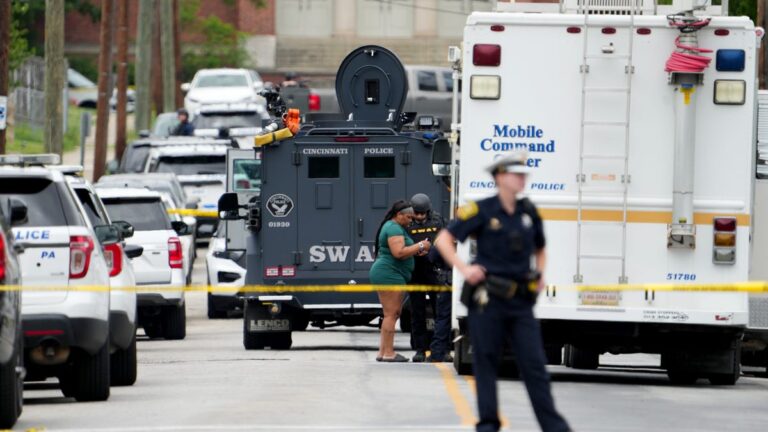After 2020, politicians realized that openly calling to “Defund the Police” sparked backlash − so now they use quieter tactics to chip away at law enforcement’s role without saying it out loud
Cincinnati Police chief Teresa A. Theetge speaks on police initiative in high crime areas
Cincinnati Police chief Teresa A. Theetge speaks on police initiative in high crime areas
Starting in 2022, Cincinnati piloted the Alternative Response to Crisis (ARC) program, pairing a full-time mental health professional with a Cincinnati firefighter/paramedic. By 2024, city leaders and the Fraternal Order of Police agreed to make the program permanent. ARC is a smart, compassionate approach that sends trained responders to nonviolent calls − like mental health crises or issues involving homelessness − where empathy and expertise make the biggest difference.
ARC works because it puts the right people − highly trained, skilled professionals − in the right situations, keeping our community safe while allowing police officers to focus on more dangerous calls. It’s a model of what thoughtful public safety can look like. It’s already making a difference across Cincinnati’s 52 neighborhoods.
Just weeks after the city and FOP agreed on the future of the ARC program, the city blindsided the union with a new “Community Responders” initiative. Unlike ARC, these responders aren’t mental health professionals or paramedics. They’re civilians – often with minimal training and no authority to investigate, intervene, or protect – sent into unpredictable and potentially dangerous situations like car accidents, trespassing disputes, and even domestic conflicts.
The city’s dispatch center relies solely on 911 caller information, which is often incomplete or inaccurate, to decide whether to send a community responder instead of a police officer. Unlike the calm, nonviolent situations handled by ARC teams, these calls are chaotic and unpredictable. What starts as a minor accident or dispute can escalate in seconds. Police are trained for that. Civilians aren’t.
Sending untrained responders into high-risk situations isn’t only flawed but also dangerous. The FOP urged the city to negotiate the program, as required by Ohio law, but city leaders refused. The FOP filed a complaint, and the state has now found probable cause that the city broke the law.
The issue is now headed to a full hearing. However, while the legal fight unfolds, Cincinnatians are already experiencing the consequences of a poorly planned program. Residents have reported serious concerns − like impaired drivers leaving crash scenes without investigation, putting others at risk. In one troubling case, a pregnant woman injured in a crash was told to drive herself to a police station to file a report instead of receiving immediate medical care, endangering both her and her unborn child.
These aren’t isolated errors; they’re the predictable result of sending civilians with minimal training into situations that demand the skills, authority, and preparedness of police officers. When you dial 911 in a moment of crisis − a car crash, a heated dispute, or a trespasser on your property − you expect a trained police officer to respond. You count on someone who can take charge, protect lives, and bring order to chaos.
Cincinnati’s police officers are trained to do just that, risking their lives every day to keep our city safe. But the Community Responders program replaces them with civilians who lack the tools, training, or authority to handle danger, leaving everyone involved vulnerable. This program isn’t about improving public safety; it’s about a political agenda to “reimagine” policing in ways that undermine your safety.
After 2020, politicians realized that openly calling to “Defund the Police” sparked backlash − so now they use quieter tactics, like this program, to chip away at law enforcement’s role without saying it out loud. ARC proved we can innovate responsibly by matching trained professionals to the right calls. The Community Responders program does the opposite − it’s a dangerous shortcut that prioritizes optics over safety.
The FOP stands with the brave men and women of the Cincinnati Police Department, who protect this city with courage and commitment − even as some leaders work to limit their ability to do so. We won’t stay silent while risky policies put lives in danger. Cincinnati deserves better: a safety system that values training, accountability, and the well-being of every resident.
Your safety is worth fighting for.
Ken Kober is president of the Fraternal Order of Police Queen City Lodge 69.

